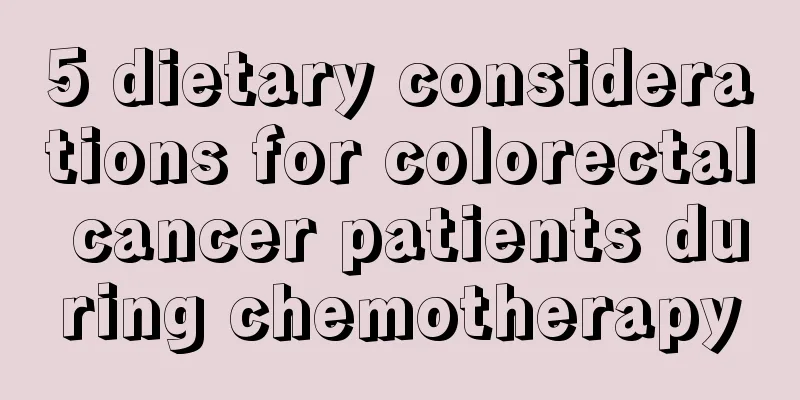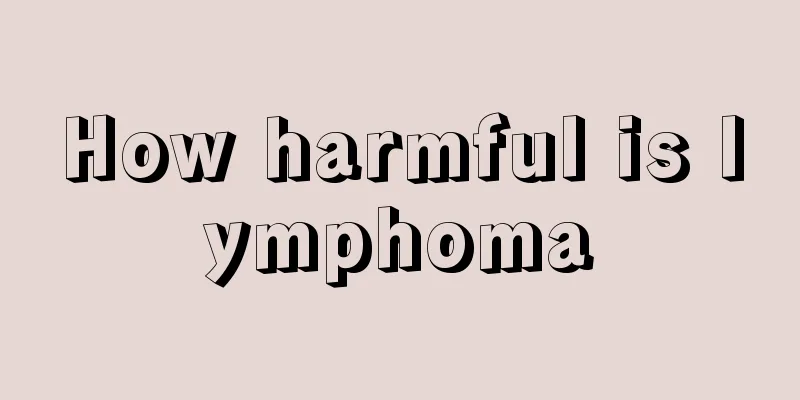5 dietary considerations for colorectal cancer patients during chemotherapy

|
Colon cancer patients who are undergoing chemotherapy often have a decreased appetite. So what are the key points that patients should pay attention to in their daily diet? 1. Eat small and frequent meals, ensure food diversity, and choose easily digestible food. Almost all chemotherapy drugs have an inhibitory effect on dietary intake. Patients have poor appetite, are afraid of greasy food, and eat less. At this time, patients should eat small and frequent meals to ensure food diversity and easy digestion. Liquid food, semi-liquid food, soft rice, etc. can be selected according to the patient's digestive ability. 2. Do not be partial or picky about food. High-fat and high-protein foods should be eaten with fruits and vegetables. Patients with colorectal cancer should not eat high-protein foods alone for a long time. They can often eat fresh vegetables rich in vitamins and cancer-preventing foods, such as tomatoes, celery, cabbage, mustard greens, radishes, soy products, citrus fruits and cereals. 3. During chemotherapy, patients should not eat foods with bones or thorns to avoid damaging the gastric mucosa and causing bleeding. In addition, they should eat less high-sugar foods to avoid food fermentation and acid production in the body, which may cause gastrointestinal discomfort. 4. Patients should not rush to eat a lot during vomiting. First, they should replenish water. After vomiting, patients can first use warm salt water with a little sugar, swallowing small amounts frequently. Lotus root has a hemostatic effect. If there is blood in the vomit, patients should first drink lotus root powder or fresh lotus root juice. After that, they can first drink millet soup or thin lotus root powder, and then slowly drink rice porridge or thin noodles with meat floss, etc., which are easy to digest and less irritating. Patients should not eat large amounts of meat, eggs, milk and other foods that are difficult to digest. 5. Dietary conditioning for digestive tract toxicity: Chemotherapy for colorectal cancer can cause oral mucositis, which manifests as mucosal congestion, edema, ulcers, pain, etc. At this time, patients should keep their mouths clean, brush their teeth after eating, supplement with high-nutrition liquid or semi-liquid diets, and avoid overheated, overly acidic and irritating foods when eating. When patients have acute oral inflammation, they can hold ice in their mouths to reduce inflammatory exudation; when ulcers occur, patients can add 0.1g of crushed vitamin C to 20ml of honey and hold it in their mouths 2-4 times a day. |
<<: 6 points to note in postoperative care for brain cancer patients
>>: The difference between Hodgkin's lymphoma and non-Hodgkin's lymphoma
Recommend
What's the matter with sore and weak legs
I believe many people are confused about why thei...
How to apply eye ointment into the eyelid
Applying eye ointment is a bit complicated, but t...
Early diagnosis of colorectal cancer
Special staining and magnifying endoscopy have la...
What medicine is best for treating urethritis
Women are more likely to suffer from urethritis t...
What are the effective things to treat athlete's foot?
In daily life, there are some things that seem ve...
What should I do if I have a neuralgia caused by a cold?
Colds are a common problem for everyone. Once a c...
Is it good to take folic acid when preparing for pregnancy?
Before preparing for pregnancy, both men and wome...
How long does it take for scabs to form after semi-permanent eyebrow tattoo
When a wound occurs on the human skin, scabs will...
Diet therapy for dry eyes when waking up in the morning
I used to have dry eyes when I woke up in the mor...
How should lung cancer patients pay attention to their diet? Lung cancer patients should pay attention to three points in their diet
How should lung cancer patients pay attention to ...
What will happen if you don't squeeze out the pimples
Many adolescent boys and girls may have the probl...
How to eat papaya to promote lactation
Many people like to eat papaya very much. They al...
What are the most common early symptoms of gastric cancer
Among cancer diseases, gastric cancer is one of t...
These three causes of rectal cancer are very important
Understanding the causes of rectal cancer is very...
Is hair thinning good?
The beauty and hairdressing industry in our count...









